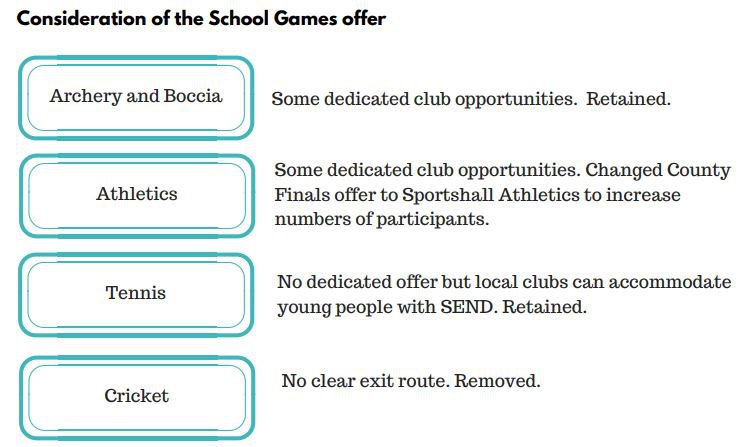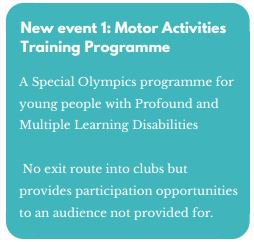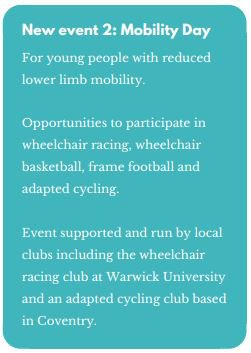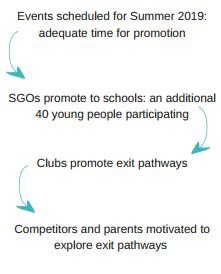Coventry, Solihull and Warwickshire Inclusive Health Check
Coventry, Solihull and Warwickshire have a School Games County Strategic Board (formerly Local Organising Committee). The Board ensures highly effective provision for young people with Special Educational Needs and Disabilities (SEND)
The board had completed an Inclusive Health Check (IHC) previously but members decided to do so again to identify any further opportunities for improvement. Alison Knight, Inclusion Lead for Coventry, Solihull and Warwickshire led this process. Their findings and subsequent actions will result in a wider cohort of young people able to participate in sports suited to their needs and interests and increased exit pathways for all young people with SEND.
“Good SGO input into the LOC IHC ensured a true reflection of what was happening in our area. This was time efficient and ensured common problems were quickly identified.”Alison Knight, Inclusion Lead and SGO, Coventry, Solihull and Warwickshire
Recommendations for completion of a countywide IHC:
- Complete as a group
- Ensure all are open to change
- Complete with purpose
- Identify gaps or opportunity
- Act on these
“A question that scores borderline ‘green’ represents an opportunity for discussion and action.”Alison Knight, Inclusion Lead and SGO, Coventry, Solihull and Warwickshire
Strategic School Games planning
Historically Coventry, Solihull and Warwickshire's School Games has included inclusive sports that fit with the available space and time and that can be delivered by existing partners. There has been a good range of sports on offer, meeting the wide needs of a range of young people. However, sports weren’t selected strategically. Local club opportunities and potential exit pathways weren’t considered and nor were the needs of specific cohorts of young people, who it became apparent remained uninvolved. Taking steps to address these issues would widen the pool of young people able to participate and simultaneously ensure meaningful progression and exit pathways for all.
“Working on exit routes - perfect.”Job King, Parallel Success Coordinator, Midlands and South, British Athletics
Planning for exit
Alison Knight and her team set out to identify clubs in the area that could support young people with learning or physical difficulties and then to match what was offered at the School Games with these progression opportunities. A lack of centralised information made this process more difficult, however twenty exit pathways across eleven clubs were quickly identified and links established. As a result the team identified pathways for sports currently provided. It changed the format of athletics to leverage local opportunity and removed cricket due to lack of a local offer.

"A key motivator was feedback from a boy at the School Games who plays for his local frame football team. He was disappointed at the lack of provision for other young people like himself. He'd hoped to encourage other users to join his club and felt isolated. I realised we needed to bring together children with similar needs and create a level playing field". Ali Knight.

Widening the field
The team also realised that the existing School Games were failing to provide for two young audiences. They sought to identify and introduce sports relevant to these two groups.


Create meaningful experiences
- Local clubs help to run events and promote their offer.
- Parents accompanying young people to county finals encourages to support club access.
- Young people have ownership - the Mobility Day will be renamed by students.
- National Governing Bodies are involved.
